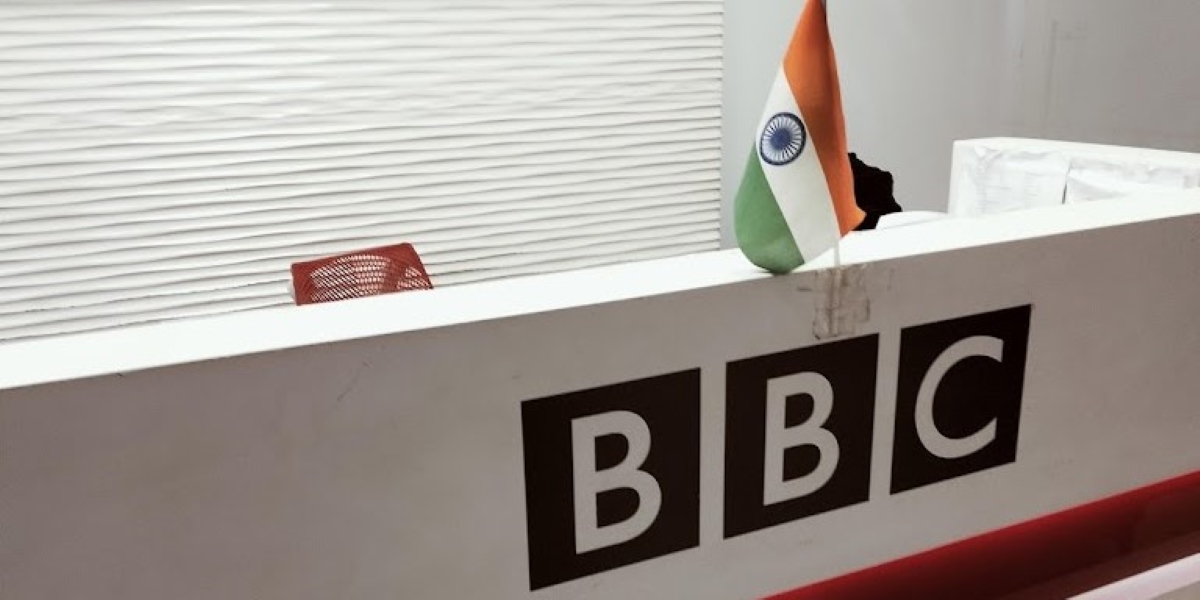Officials said that the survey is being carried out to investigate issues related to international taxation of BBC subsidiary companies.

I-T survey in BBC Delhi office. (Creative Commons)
The Income Tax (I-T) department’s “survey” at the BBC office in New Delhi continued for the third straight day on Thursday, 16 February, as officials gathered financial data from select staffers and made copies of electronic and paper data of the news organisation.
The operation that began at the British Broadcasting Corporation (BBC) offices in Delhi and Mumbai around 11:30 am on Tuesday has clocked more than 45 hours now, officials said.
The survey is going on, they told PTI.
Opposition parties have denounced the I-T department’s action against the London-headquartered public broadcaster, terming it a “political vendetta” over the airing of the controversial documentary, India: The Modi Question about the Gujarat riots of 2002.
The unprecedented actions taken by the IT Dept at the BBC's Indian offices are highly questionable, raising concerns over media freedom. Infringement on press freedom is objectionable and can embarrass our nation on the international stage. #BBC #PressFreedom
— Pinarayi Vijayan (@pinarayivijayan) February 14, 2023
Authorities had said on Wednesday that the exercise would continue for some more time, saying the “exact time frame to call the operation closed rests entirely on the teams on the ground”.
The survey is being carried out to investigate issues related to international taxation and transfer pricing of BBC subsidiary companies, officials have said.
The survey teams are seeking answers on financial transactions, the company structure and other details about the news company, and are copying data from electronic gadgets as part of their task of collecting the evidence, tax officials had said.
On Tuesday, the ruling BJP had accused the BBC of “venomous reporting” while the Opposition had questioned the timing of the action that came weeks after the broadcaster aired a two-part documentary “India: The Modi Question” on Prime Minister Narendra Modi and the 2002 Gujarat riots.
Those misusing the people’s mandate and are responsible for destroying Indian Democracy and Freedom of Press should remember that the people of this country are silently watching you and will give a fitting lesson in the impending elections. (3/3)
— M.K.Stalin (@mkstalin) February 14, 2023
While there has been no official statement from the Income Tax department on the action, the BBC has said it was cooperating with the authorities.
Meanwhile, the Editors Guild of India, on Tuesday, expressed concern over the I-T surveys at the offices of BBC India.
The statement alleged that the survey by the I-T department is a continuation of the trend of using government agencies to “harass or intimidate” press organisations who are critical of the ruling dispensation at the Centre.
A BBC staffer in Delhi said they were broadcasting their news like usual.
Earlier, the Supreme Court on 10 February, dismissed a plea seeking to impose a complete ban on the BBC in India, saying it was “entirely misconceived”.
A bench comprising Justices Sanjiv Khanna and MM Sundaresh passed the order while hearing a plea filed by Vishnu Gupta, president of the Hindu Sena, and Beerendra Kumar Singh, a farmer.
“The writ petition is entirely misconceived and has no merit and is accordingly dismissed,” the bench said.
Alleging that the BBC has been biased against India and the Indian government, the plea said that its documentary on Prime Minister Narendra Modi is a “result of deep conspiracy against the global rise of India and its Prime Minister”.
“The documentary film by BBC relating to Gujarat violence 2002 implicating Prime Minister Narendra Modi is not only reflective of anti-Narendra Modi cold propaganda broadcast to tarnish his image alone but this is anti-Hinduism propaganda by the BBC to destroy the social fabric of India,” the plea had alleged.
On 3 February, the apex court sought responses from the Centre and others on separate petitions challenging its decision to block the documentary from being viewed in India.
The pleas, on which notice was issued by the top court, were filed by veteran journalist N Ram, Trinamool Congress MP Mahua Moitra, activist lawyer Prashant Bhushan, and lawyer ML Sharma.
The top court had on that day also directed the central government to produce original records relating to its decision to block the BBC documentary.
On 21 January, the central government issued directions for blocking multiple YouTube videos and Twitter posts sharing links to the controversial documentary.
However, screenings of the documentary were held across the country including public spheres, and university campuses.
(With inputs from PTI)

Apr 13, 2023

Feb 17, 2023

Feb 14, 2023

Feb 13, 2023

Feb 13, 2023

Feb 02, 2023